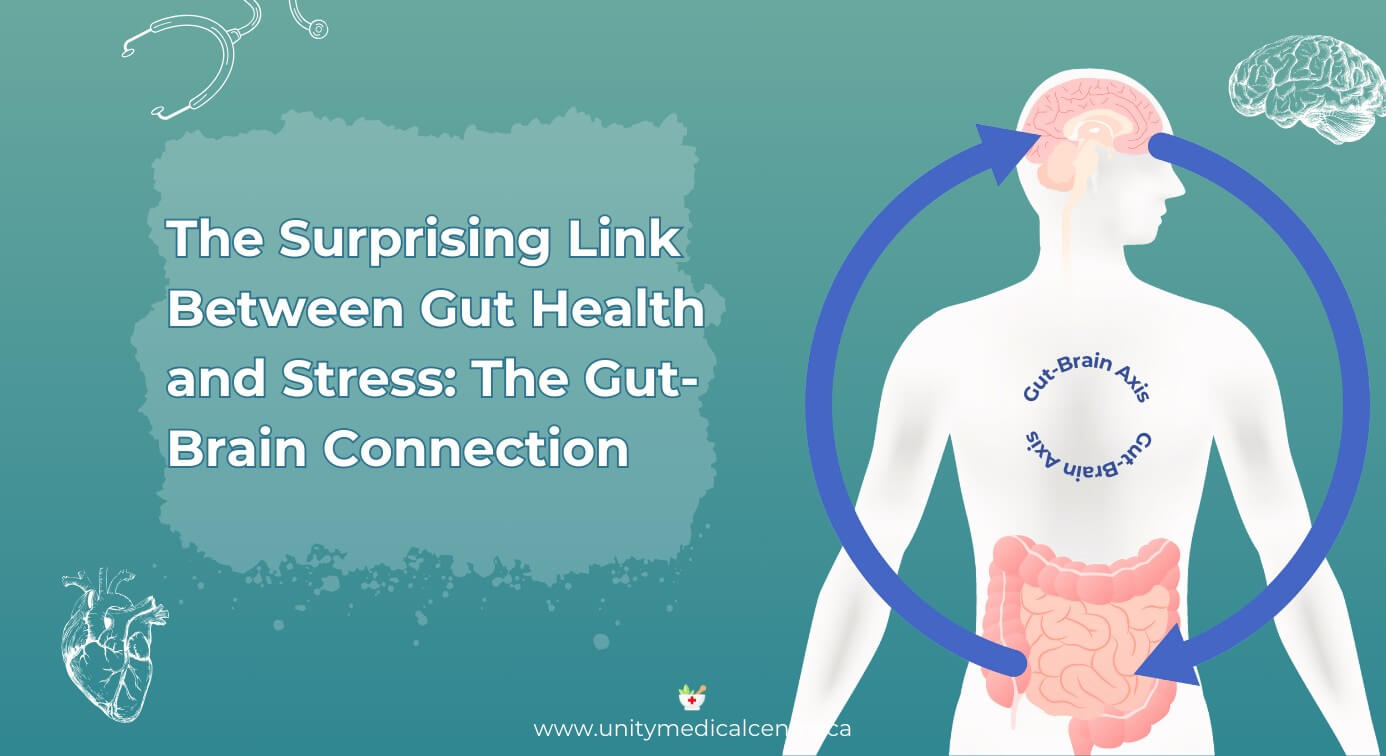
The Surprising Link Between Gut Health and Stress: The Gut-Brain Connection
Introduction
In the intricate web of our bodily functions, the gut and the brain engage in a silent dialogue—one that transcends mere digestion and mental cognition. Recent scientific revelations have illuminated the profound connection between gut health and stress, unraveling a fascinating tale of symbiosis and influence. In this article, we delve into this surprising link, exploring how our gut microbiome impacts stress levels and vice versa.
The Gut-Brain Axis: A Hidden Highway
The gut-brain axis, often likened to a clandestine highway, facilitates bidirectional communication between our gastrointestinal tract and our central nervous system. This intricate network involves neurons, hormones, and immune cells, all orchestrating a symphony of signals. But what exactly transpires along this hidden highway?
1: Microbial Messengers
At the heart of this connection lies our gut microbiome—a bustling community of trillions of microorganisms residing in our intestines. These tiny inhabitants, collectively known as the gut flora, play a pivotal role in our overall health. But their influence extends beyond digestion.
Recent studies reveal that gut bacteria produce neurotransmitters—chemical messengers that affect our mood and behavior. Serotonin, the famed “feel-good” neurotransmitter, is predominantly synthesized in the gut. Yes, you read that correctly: your gut manufactures happiness!
2: Stress and the Microbiome
Now, let’s pivot to stress. When stress hormones flood our system, they impact our gut environment. Chronic stress disrupts the delicate balance of gut flora, altering their composition. Dysbiosis—a term denoting an imbalance in gut bacteria—can lead to inflammation, leaky gut, and a host of health woes.
But here’s the twist: the gut microbiome also influences our stress response. When gut bacteria are in harmony, they produce short-chain fatty acids (SCFAs). These SCFAs act as calming messengers, soothing our nervous system and mitigating stress. Imagine them as tiny peacekeepers patrolling the gut-brain border.
3: The Vagus Nerve: A Bridge of Influence
Enter the vagus nerve—a remarkable conduit connecting the gut and the brain. This cranial nerve, meandering through our body like a silent river, relays messages between the two realms. When stimulated, it triggers relaxation responses, dampening stress.
But the vagus nerve isn’t a one-way street. It also informs the gut about our emotional state. Ever felt “butterflies” in your stomach during an anxiety-ridden moment? That’s the vagus nerve at work, translating stress signals into gut sensations.
The Gut-Brain Connection in Action
Now, let’s explore some lesser-known facts:
1: Gut Diversity and Resilience: A diverse gut microbiome—rich in various bacterial species—enhances our ability to cope with stress. Monocultures, on the other hand, render us vulnerable.
2: Probiotics as Stress Allies: Consuming probiotics (those friendly bacteria in yogurt and kefir) can bolster our stress resilience. These probiotic warriors restore gut balance and fortify our defenses against stressors.
3: Fermented Foods and Mood: Sauerkraut, kimchi, and kombucha aren’t just trendy—they’re mood enhancers. Fermented foods nourish our gut flora, promoting emotional equilibrium.
4: The Gut-Brain Prescription: Next time you’re stressed, consider a gut-friendly diet. Load up on fiber, prebiotics (food for your gut bacteria), and fermented delights.
Conclusion
As we unravel the gut-brain connection, we realize that our well-being transcends individual organs. It’s a symphony—an intricate dance of microbes, nerves, and emotions. So, nurture your gut, and it shall reciprocate with resilience and serenity. Remember: the gut-brain axis isn’t a mere highway; it’s the essence of our holistic health.
In this age of stress and uncertainty, perhaps the path to tranquility lies not only in meditation and mindfulness but also in the quiet whispers of our gut flora.
References:
- Mayer EA, Knight R, Mazmanian SK, Cryan JF, Tillisch K. Gut microbes and the brain: paradigm shift in neuroscience. J Neurosci. 2014;34(46):15490-15496. doi:10.1523/JNEUROSCI.3299-14.2014
Dinan TG, Cryan JF. The microbiome-gut-brain axis in health and disease. Gastroenterol Clin North Am. 2017;46(1):77-89. doi:10.1016/j.gtc.2016.09.007
